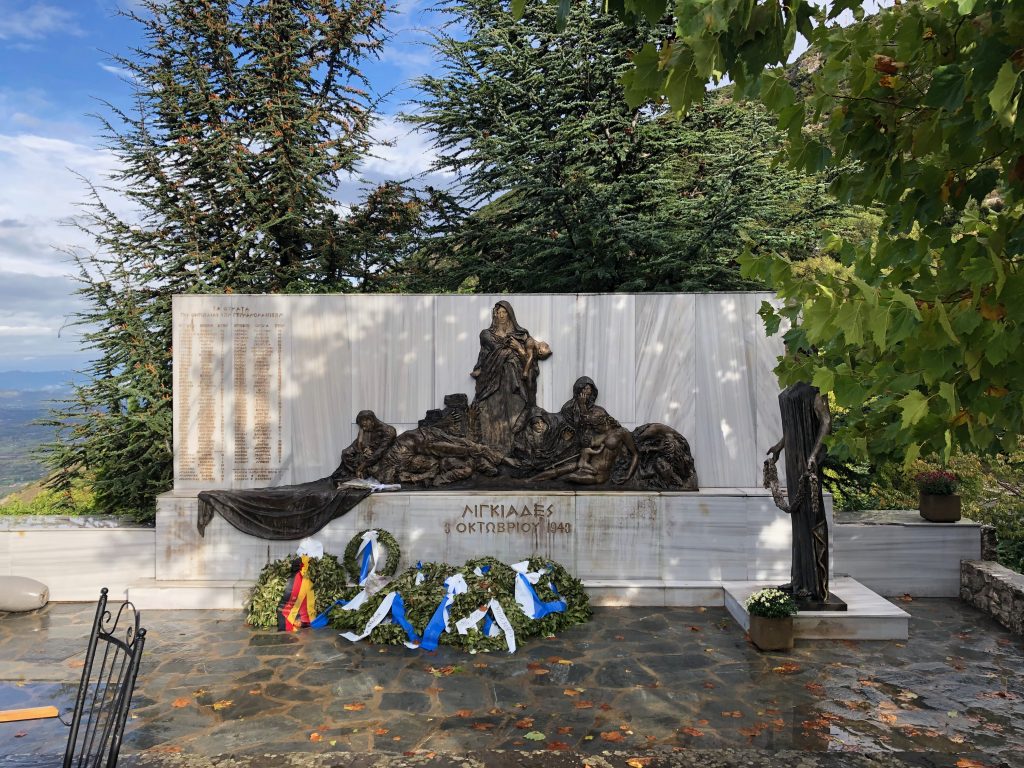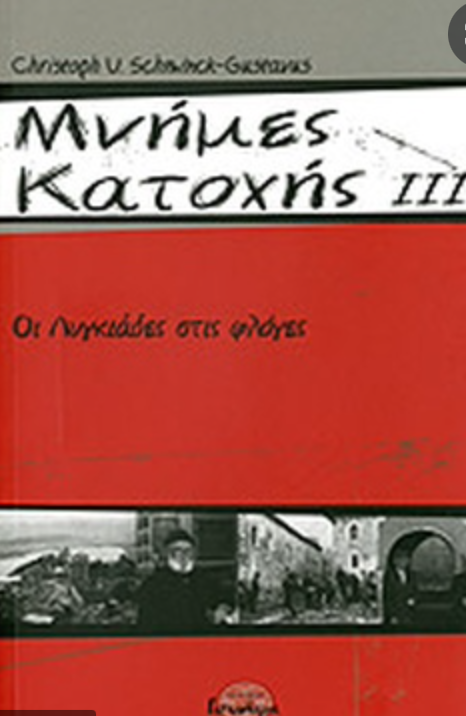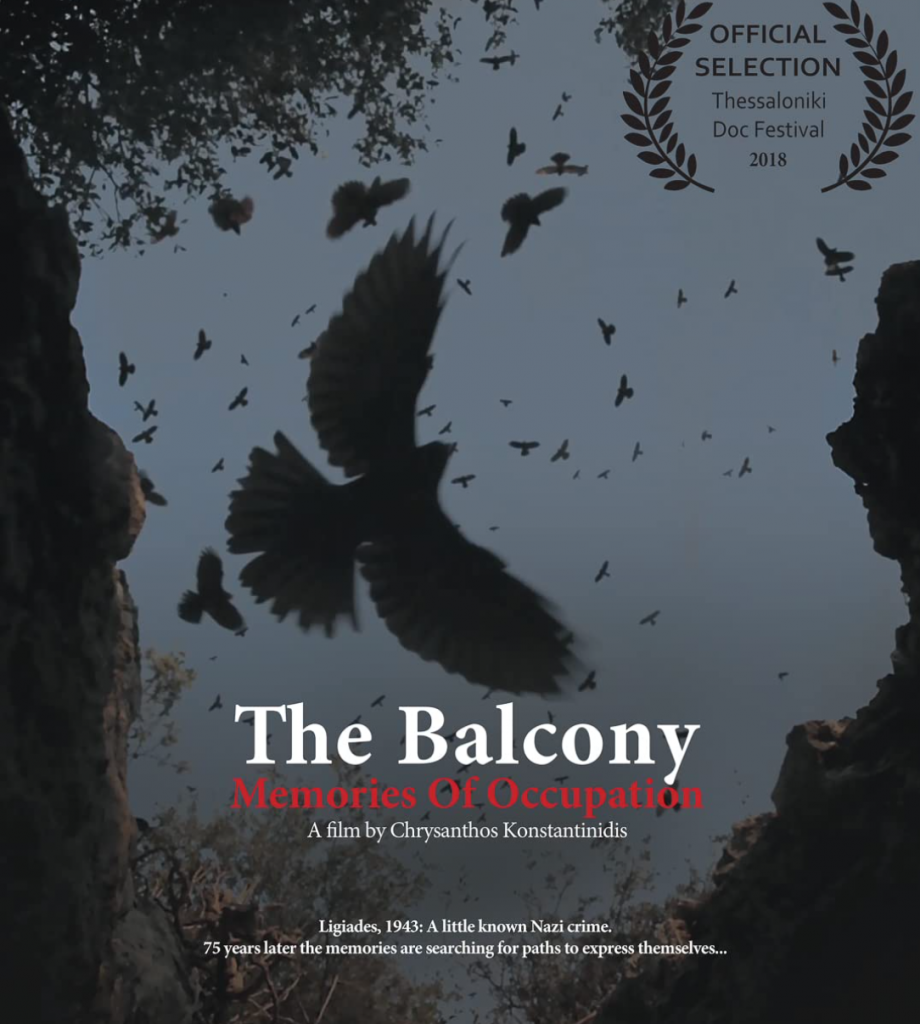On the main square in Ligiades, where the Nazis gathered all the villagers in 1943, is a memorial that commemorates the atrocities of the third of October 1943. And every year on the first Sunday in October, a commemoration ceremony takes place on this exact square. Usually Panagiotis Babouskas, the only living survivor, and descendants of victims and other people lay down wreaths, speeches are held and the names of the murdered are read out aloud.

The first official visit of a German member of government occured in 2014. Bundespräsident Gauck came to Ligiades on the 7th of March in 2014 and asked for forgiveness in the name of Germany. He called the massacre a “brutal injustice” and spoke about the responsibility to make sure the German atrocities won’t be forgotten. Nevertheless, Gauck rebutted the demand for compensation of the Greek population. This led to a small protest, directly after Gauck left: Five men rolled out posters that had written “Compensation” and “Justice” on them.
In 2018 Chrysanthos Konstantinidis published a movie about Ligiades “To Balkoni”, that uses the audio tapes of Christoph Schminck-Gustavus, who researched about Ligiades in the 1980s and interviewed the survivors of the massacre in order to write a book about it. This book was also mentioned in Gauck’s speech in 2014. In the movie, descendants react to these tapes and tell their story. Furthermore, the only still living survivor, Panagiotis Babouskas, is interviewed and scenes from Gauck’s visit are included.
In Germany, the remembrance of war crimes that happened in Greece has two sides. Organizations such as “Respekt für Griechenland” (Respect for Greece) engage in broadening the attention on war crimes in Greece. They openly support the repayment of the forced credit the Greek government had to give Germany in 1942 in order to pay for the occupation expenses as well as the reimbursement of the money the Jewish Community of Thessaloniki had to pay for the train tickets into their death in Auschwitz. The German government considers all of these payments reparation claims, a demand it considers obsolete because of the “two plus four” contract between Germany and the former occupying powers of Germany in 1990. This contract regulated the foreign affairs of Germany and was made in 1990. In 2014 an inquiry regarding the reparation payments to Greece was made by the left party and the answer of the German government was this: After decades of “peaceful, trusting and prolific cooperation” between Germany on one side and the NATO and EU partner Greece on the other side, “the question of reparation lost its entitlement” (17. January 2014, https://dserver.bundestag.de/btd/18/003/1800324.pdf).
Until today, every year, the said association organizes a commemoration ceremony for the fallen and missed soldiers of the mountain infantry. However, since 2002, a counter-association called “Angreifbare Traditionspflege” (attackable cultivation of tradition) was founded and organized diverse campaigns to remember the involvement of the mountain infantry in war crimes, such as the one in Ligiades. As a success of this initiative one could mention that in 2010 the municipality of Mittenwald built a memorial for the victims of the mountain infantry. Furthermore in 2019, the “Kameradenkreis der Gebirgstruppe” and the organization “Angreifbare Traditionspflege” came to an agreement. Before each commemoration there has to be a bigger focus also on the bad aspects of the Mountain Division’s history. For example, a movie about war crimes in Greece was shown. Nevertheless, if one takes a look into the statue of the association “Kameradenkreis der Gebirgstruppe”, the war crimes are only mentioned in one single sentence. Memorials that are put up for the victims are not talked about and most of the 35 pages are about the great virtues of a soldier that is part of the mountain infantry.
Media about Ligiades

Μνήμες κατοχής
The book from Christoph Schminck-Gustavus, available in Greek and German (Feuerrauch) about the massacre in Ligiades, including talks with the survivors of the massacre.

To Balkoni is a movie by Chrysanthos Konstantinidis, based on the tapes of Christoph Schminck-Gustavus about the massacre and deals with the entire story of the massacre and its aftermath.